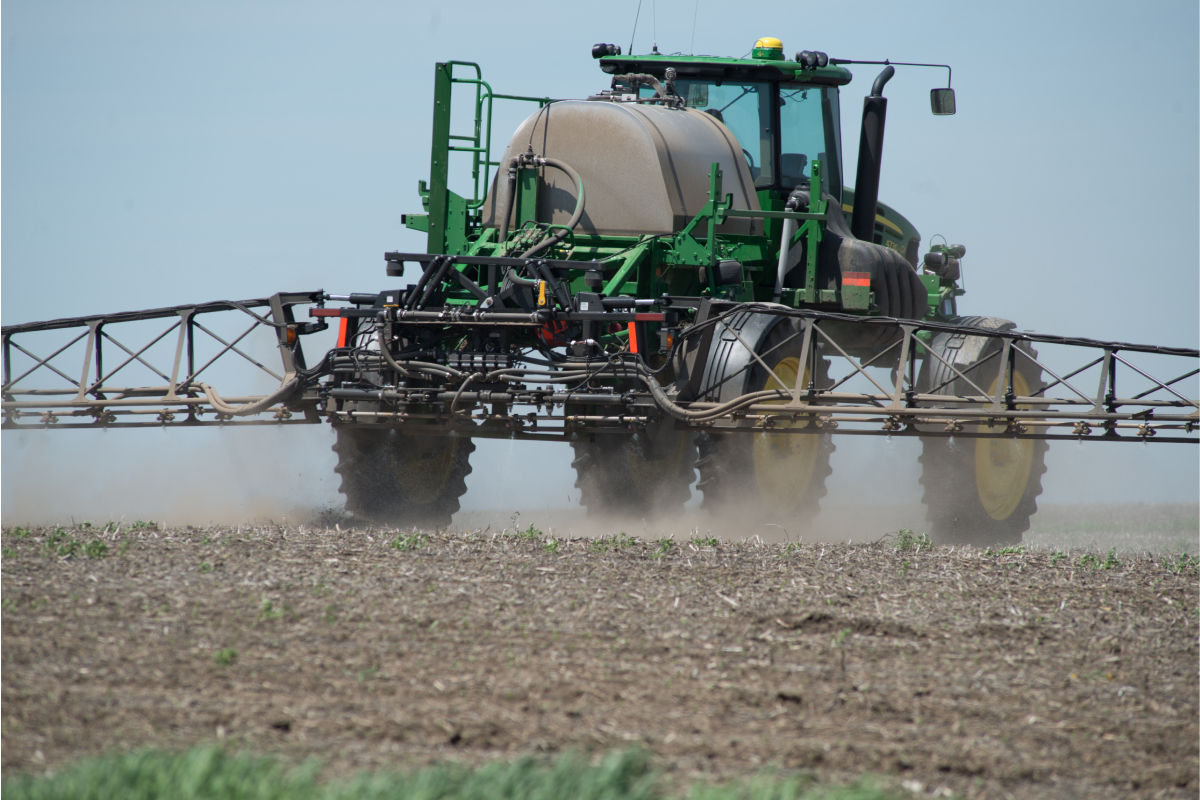
(Photo: Iowa Soybean Association/File Photo)
Protecting fertilizer access for farmers
April 10, 2025 | Bethany Baratta
Recent tariff announcements have heightened and highlighted the necessity to increase domestic mineral production, including potash and phosphate, says Iowa Soybean Association (ISA) Brent Swart, a farmer near Spencer.
“Potash and phosphate are essential to growing the food that sustains our nation, and we rely heavily on imports to get them. Global disruptions put farmers in a tough spot, driving up costs and hurting farm profitability,” Swart said.
In a letter sent to newly-confirmed Secretary of the Interior Doug Burnam last week, Senator Joni Enrst (R-IA) joined others to request that potash and phosphate both be listed in the U.S. Geological Survey’s Department of the Interior (DOI) List of Critical Minerals.
“Fertilizers containing potash and phosphate are essential to maintaining soil fertility, improving crop yields, and ensuring consistent food production,” the senators wrote in the letter. “Without access to a stable and affordable supply of these minerals, farmers face higher costs, reduced yields, and increased uncertainty—challenges that threaten their livelihoods and the food security of millions of American families.”
To be listed on the DOI’s List of Critical Minerals, three criteria must be met:
- A mineral must be essential to the economic or national security of the U.S.,
- Its supply chain must be vulnerable to disruption, and
- The mineral must serve an essential function in the manufacturing of a product.
The United States imports 85% of its potash needs, primarily from Canada, according to the letter’s authors. Worldwide, only 14 countries produce potash, with Belarus and Russia accounting for nearly 40% of total production.
The importance of potash to the nation’s economic and national security was recognized in 2018 when DOI included potash on its list of 35 critical minerals. However, the Biden administration removed potash from the list in 2022—a decision that clearly warrants reconsideration, senators said. In an executive order on March 20, 2025, President Donald Trump reversed this, adding potash to a mineral production prioritization list. He signed an executive order to boost American mineral production, streamline permitting, and enhance national security.
The United States must address the growing risks to this supply chain, including a return to domestic production of potash as quickly as possible, the senators urged.
In contrast to potash, phosphate is more abundant in the U.S. Even so, the United States is heavily reliant on imports, the letter noted.
“With China and Russia—responsible for 25% and 14% of global phosphate exports, respectively—imposing export controls, the market remains highly vulnerable to supply disruptions, the authors wrote.
“Adding these minerals to the Critical Minerals List helps secure a stable, domestic supply, protecting both our farms and the wallets of everyday consumers," Swart said.
View the letter here: https://www.ernst.senate.gov/imo/media/doc/fertilizer_letter.pdf
Back